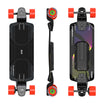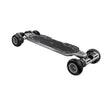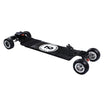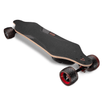It doesn’t matter where you ride, the answer about whether electric skateboarding is legal starts with “No, but…” and in a few occasions (California, Denmark, Norway, Belgium) the answer is “Yes”. In spite of this, the motor skateboard industry is growing fast, with new models and technologies being launched every few weeks.However, for quite some time electric skateboards riders have been unsure about their countries’ legislation. What needs to be done to create more clarity?
Situation in Europe
After a specific test case in 2011, a man in the UK was fined £75 for riding his Segway on the sidewalk. Four years later a teenager was killed while riding a hoverboard after being hit by a bus. This led to the banning of most self balancing vehicles in public areas. They are now limited to private land. But is this law really enforced? If you look at how many people ride electric skateboards, hoverboards and the like in London and other cities it becomes clear that the answer is no. Germany is just another example of a country that struggles big time with the situation where technology is challenging existing regulations and laws. A few years ago, police in Berlin confiscated an electric skateboard and the owner was fined. This case received a lot of attention on social networks. The vast majority of the users complained about the reaction by the police and for not taking into account the need for people to commute in alternative ways. The official statement of the government says that regulation for electric vehicles in Germany is planned for this year (2019). It will supposedly apply to motorized vehicles with a speed of at least 12 km/h (7.5 mp/h) up to a maximum speed of 20 km/h (12 mp/h).In Denmark, the government has recently approved electric vehicles as of 1/1/2019, along with some restrictions. Max speed of 20km/h (12 mp/h), the minimum age to ride is 15 year old and you have to wear gear with lights on your body or the board itself. There is no mandatory registration or insurance. The Danes also announced a test period for the adoption of a law for light electric vehicles allowing e-skates in traffic.In France, the laws are vague but most of the local e-skaters (Source: esk8.fr) will tell you that wearing a helmet and not riding in a dangerous manner means that you can ride freely.Norway also just recently legalized light electric vehicles considering them the same as bicycles. Norwegians don’t actually need a registration or an insurance to ride. Permitted maximum speed is 20 km/h (12 mp/h), you need gear that can carry lights, reflectors, a certain braking power and a signal bell or signal horn.Belgium has a similar approach towards electric skateboards and they are considered to be under the same category of Segways allowing riders to use them in the same locations as bikers use, limited to 25km/h (15 mp/h).
The US is divided
In the US, Some states require electric skateboards to follow bicycle laws.In California, riders are allowed to use electric skateboards on bicycle roads and paths as long as a helmet is being worn and the rider is over 16 years of age. It is also required that the riders have reflectors and lights.
Overview about other countries
In other countries around the globe, riders are also considered to be like pedestrians. In Singapore for example, they introduced e-skate laws which allow the boards to be used on pavements up to 15km/h (9 mp/h) and 25km/h (15 mp/h).In Israel, electric vehicles were prohibited to use until 2004. Since then this law was removed, and the streets were flooded with young riders on all types of electric vehicles.After a few tragic accidents that affected both pedestrians and riders, rules came up again forcing riders to wear helmets, drive on the motor roads only and ride without headphones.Some riders in Israel say the rules do not make any sense, since putting electric riders on motorways put them in more danger, yet pedestrians say that riding on sidewalks is dangerous for them. As of today, the rules continue to change and are being tested in Israel, until new laws will be permanently implemented.Some countries like Australia are making technological progress as they are giving e-skaters rights to ride since they are considered as “wheeled recreational devices.” As an official explains: “Unlike cyclists, skateboarders are classed as pedestrians. This means you cannot ride your electric skateboard on roads with median strips, one-way roads with more than one marked lane or any road where the speed limit is greater than 50 kilometres per hour.”
Conclusion
To wrap up things, the lack of a specific ‘electric skateboard law’ does not mean that electric skateboarding is legal where the laws are vague. Whether it is Sydney, New York, Hamburg or London, e-skates might be classified as “motor vehicles”, and that’s why they are potentially usable on roadways and in traffic. On the other hand, for eskaters it might be better to use the sidewalk or bicycle lanes as it’s simply safer than sharing the lane with cars and trucks.As electric skateboarding become more widely known, authorities will have to acknowledge this new way of transportation and we will see more norms and laws regulating electric longboard in a way which is both reasonable and safe for the riders and the other traffic participants.How is the regulation in your country, state or city? Have you ever been stopped by the police? Share your thoughts and stories below.






















